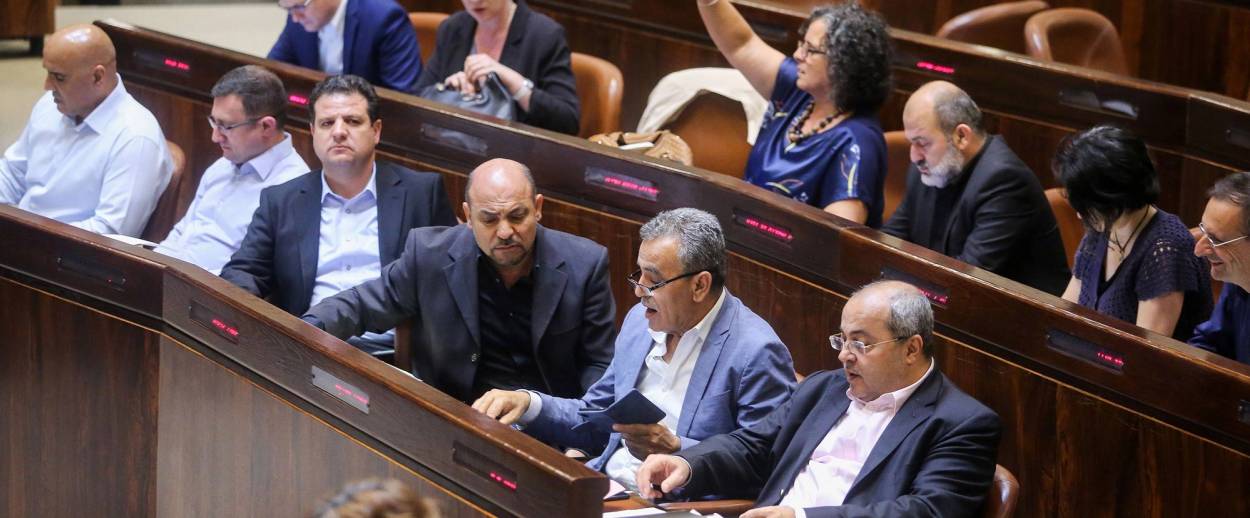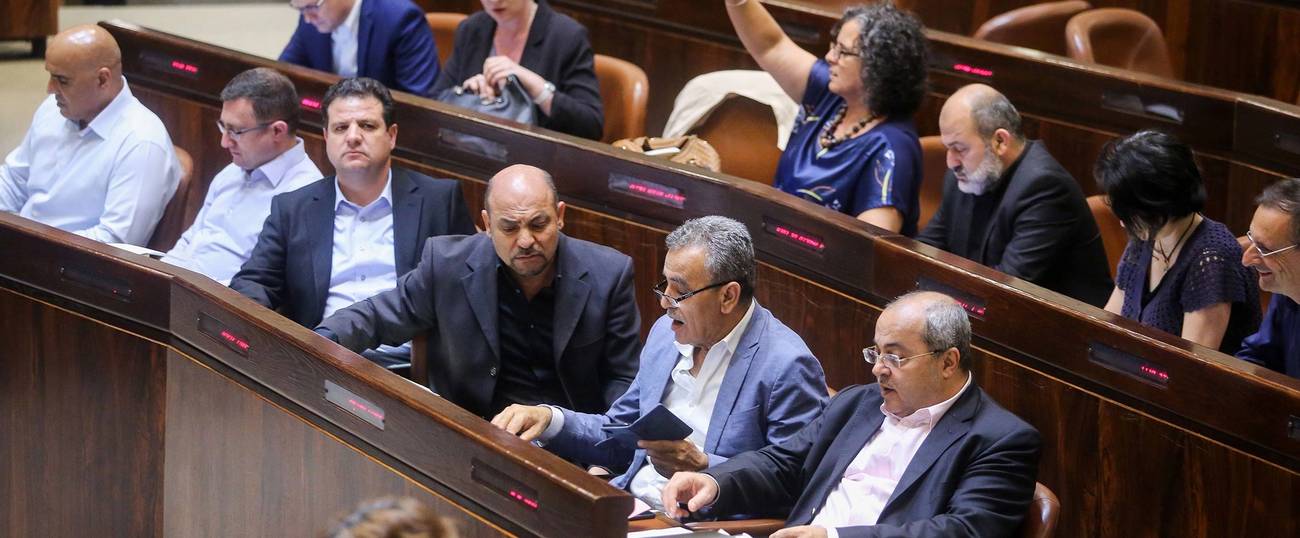Could Arab Israelis Swing the Next Election?
The power of the powerless in Israel’s fractured political landscape




The dominant feature in the current Israeli election—set for Sept. 17, a short five months after the last one—was initially its combative infighting on all sides: both within and among the Israeli Jewish parties of right and left, and within and among the Israeli Arab parties. Those divisions have, however, given way to a series of marriages of convenience, indicating that even in Israel pragmatism may trump ideology or principle.
On one side, any differences among the four main Israeli Arab parties have now been subordinated to a United Arab List, which hopes to achieve strength in numbers. In the 2015 election, a similarly joint list, with a 63% Arab voter turnout, won 13 Knesset seats (of the total 120); the current list’s aim for a 70% turnout would yield a still more significant representation. Still, even with more seats in the Knesset, the list’s political influence will be limited by being shut out of any role in a coalition government due to the consensus among Israeli Jewish parties that no government should depend for its majority on Israeli Arab votes—a bias paralleled by the Israeli Arab parties’ own refusal to join a “ruling” Israeli government. This mutual blockade has meant that no coalition representing 20% of Israel’s citizenry has governed in Israel’s 70-year history—a nonpartisan division whatever other unities are on display. However, even without the chance of joining a governing coalition, increased Arab turnout could play an important role in the election by playing spoiler and prevent a right-wing victory. As Dr. Thabet Abu Rass, co-executive director of the Abraham Initiatives, explained to The Jersualem Post in late July, describing the aims of the Arab Joint List: “They want to stop Prime Minister Benjamin Netanyahu from getting 61 seats.”
Forced allegiances among the fragmented Jewish Israeli political parties, right and left, have been as notable as those bringing the Arab Israeli parties together. The Likud, anticipating the indictment of its leader (and burdened by the weight of Netanyahu’s longevity as prime minister) was initially challenged from a number of parties to its right. Those parties flanking Likud from the right ran on issues ranging from Avigdor Lieberman’s insistence on IDF conscription for Yeshiva students, to the Halakhic state urged by Bezalel Smotrich’s National Union, the fervid nationalism of HaBayit HaYehudi under Rafi Peretz, and the Kahanist Otzma Yehudit.
Adding to the drama among the Israeli right was the failure of the New Right party of Naftali Bennett and Ayelet Shaked to meet the 3.25% minimum in last April’s election with the two of them then forced out of their ministers’ positions. But like a phoenix rising from the ashes, Shaked is now No. 1 in a new New Right umbrella group, with Peretz, Smotrich, and Bennett in that order despite the religious nationalist’s antagonism to her as no less secular than Netanyahu and as a woman. This new Right Unity coalition will almost certainly draw some support among Likud voters. One significant party, Yisrael Beitenu, is still outside this unification of the right. But pungent criticism by its leader, Lieberman, of the religious right’s aim to remake Israel as a halakhic rather than a Jewish state has resonated widely, reaching voters, both right and left, who don’t otherwise support him or his party.
The irony that a patchwork group of Netanyahu’s former allies now poses a challenge to his reelection is lost on nobody, least of all Bibi. The more compelling issue is how the Likud, with or without Netanyahu, could form a coalition capable of governing—precisely what the party failed to do in the last election that it “won.”
The Israeli left has also moved from initial disarray toward new if uncomfortable alliances. Benny Gantz’s Blue and White party nearly matched the Likud’s vote in the April election, but has since suffered from a passive and silent leadership and at the moment continues to stand alone. Labor, the traditional bastion of Israeli socialism, has now, under the leadership of Amir Peretz, allied itself with the center-right Gesher, which failed to pass the threshold in the April election and has expressed willingness to join even a future Netanyahu-led coalition. (That willingness was conditioned on Netanyahu’s not being indicted in his October hearing which comes only after the Sept. 17 election—mere sop for Labor’s anti-Netanyahu base.)
Elsewhere on the left, there is Ehud Barak’s invented Israeli Democratic party, loosely articulated and newly tainted by the former prime minister’s connections to the criminally shady Jeffrey Epstein. The fact that Barak’s party has no platform other than opposition to Netanyahu, has not stopped it from gaining a partner in Meretz, the flagship for Israel’s center-left that squeaked into the current Knesset with four seats. This alliance may provide a lifesaving buoy allowing each to rise above the electoral minimum, but unless they find a way to do more than pick off individual members of Labor, they are facing near certain defeat whether Netanyahu is indicted or not.
The chances of a center-left government coalition emerging from this election seem, in any event, no less problematic than what’s involved in Blue and White or Labor forming a workable governing coalition. Any new arrangement in Israeli politics, including these recent marriages of convenience, has to compete, not only against the other parties, but against a baseline desire among the electorate to preserve the status quo.
***
Like this article? Sign up for our Daily Digest to get Tablet magazine’s new content in your inbox each morning.
Berel Lang, Visiting Professor of Philosophy and Letters at Wesleyan University, is the author of, among other books, Act and Idea in the Nazi Genocide, Philosophical Witnessing: The Holocaust as Presence, andPrimo Levi: The Matter of a Life.